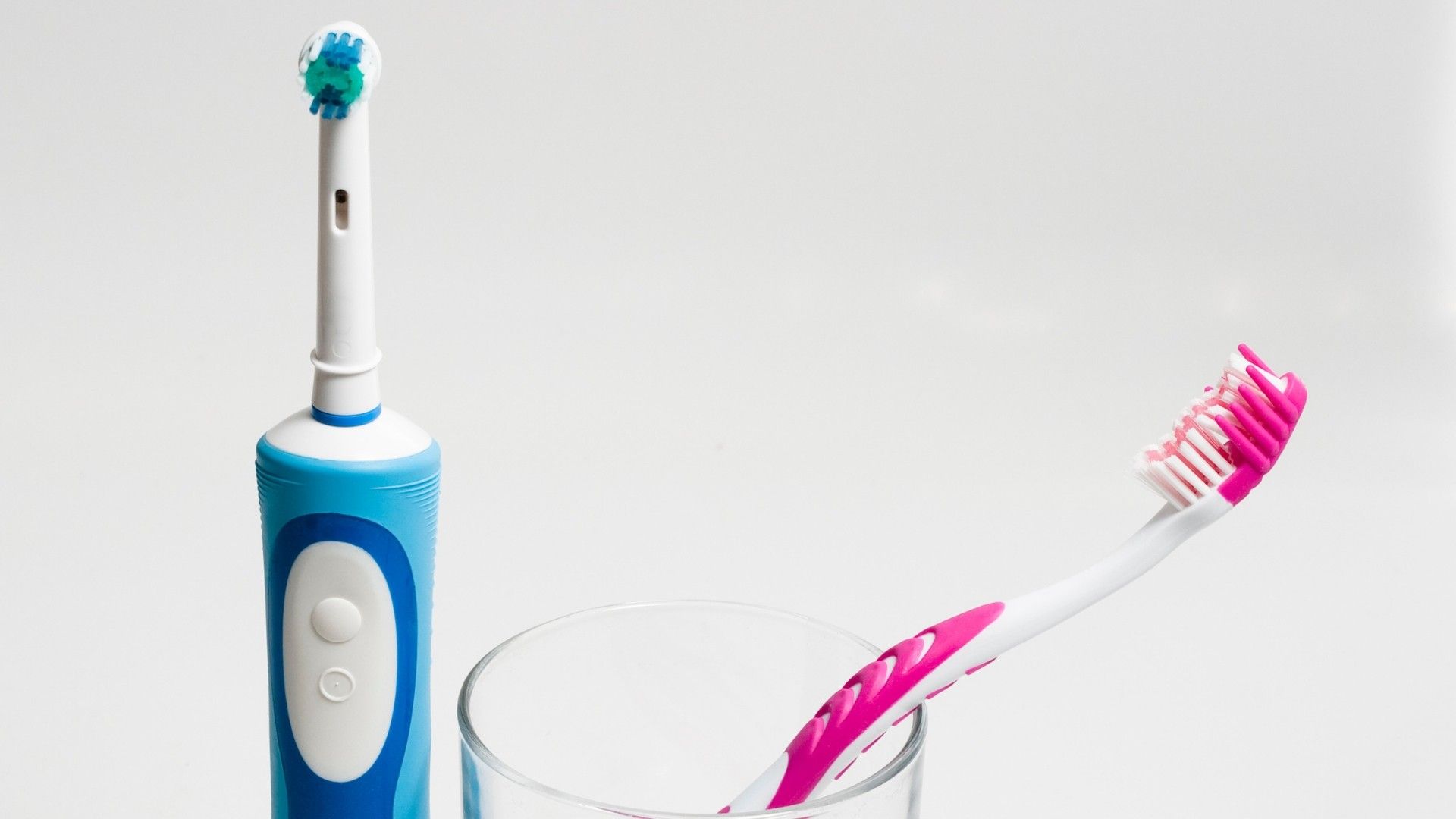In the world of oral hygiene, electric toothbrushes have become the go-to technology that claim to make our teeth cleaner with less effort. But are these tech toothbrushes really better than manual brushing? In this article, we examine the benefits of electric toothbrushes as well as some important things to think about when choosing your next brush.
What qualifies as an electric toothbrush?
Electric toothbrushes are powered brushes equipped with oscillating or rotating brush heads, designed to reduce manual movements and improve the efficiency and coverage of cleaning your teeth. Their automated movements provide a consistent and thorough cleaning experience, eliminating much of the guesswork associated with manual brushing.
Battery-operated toothbrushes are a cheaper, non-rechargeable alternative to electric toothbrushes that are more closely aligned with a manual toothbrush. They require movement along the teeth as they lack the rotating brush head; however, due to the battery-powered vibration, they remove more plaque than manual toothbrushes.
What are the benefits of Electric toothbrushes?
1. Comprehensive Cleaning:
Electric toothbrushes effectively remove plaque from our teeth due to faster, automatic movements and smaller heads, allowing them to clean consistently. This helps keep our gums healthy and lowers the risk of periodontal disease. The topic of a range of research, studies like the one published in the Journal of Dentistry found that the smaller head and faster oscillating movements showed powered toothbrushes reduce plaque and gingivitis better than manual brushing in the short and long term.
2. Timing Your Brushing:
With built-in timers often set to the recommended two minutes, electric toothbrushes encourage users to dedicate the ideal amount of time to their oral care routine. This not only ensures a comprehensive clean but also reinforces the habit of thorough brushing.
3. Pressure Sensors for Gentle Cleaning:
Many electric toothbrushes come equipped with pressure sensors, a feature that prevents excessive force during brushing. This gentle approach is crucial in safeguarding gums and enamel, ensuring a thorough cleaning without causing damage.
4. Ideal for Those With Limited Mobility:
For individuals with limited dexterity or mobility issues, electric toothbrushes are ideal. The automated movements reduce the physical effort required for effective brushing, making sure oral care is comprehensive, regardless of your mobility.
Things to Keep in Mind when choosing your next brush
1. Initial Cost:
One of the primary considerations is the upfront cost of electric toothbrushes, which is significantly higher than a regular toothbrush. However, many argue that the long-term oral health benefits outweigh the initial investment and replacement heads for electric toothbrushes can be bought in bulk and work out at a reasonable price.
2. Maintenance Requirements:
Regular battery replacement or recharging and occasional brush head changes are necessary for electric toothbrush maintenance. While this adds a layer of upkeep, it ensures optimal performance and longevity and is similar to updating your manual toothbrush regularly.
3. Portability Concerns:
While travel-friendly options exist, electric toothbrushes may be less convenient for those frequently on the go. The need for a power source or charging may pose challenges in certain situations.
4. Learning Curve:
Switching from manual to electric brushing may require a short adjustment period. Users need to familiarise themselves with the brush’s features and ensure they use it effectively for the best results. Some people report a feeling of discomfort when starting out with a powered brush due to the oscillating head; however, most adjust to this sensation fairly quickly.
The verdict: just brush your teeth!
Whilst there is research and arguments to suggest that the powered toothbrush is more effective in removing plaque and preventing periodontal disease, the best prevention is brushing your teeth regularly and thoroughly twice a day.
Ultimately, the choice between manual and electric boils down to personal preference and the considerations noted in this article. Still, consistent oral care practices, regardless of the chosen tool, combined with regular checkups are the cornerstone of maintaining your oral hygiene.
Our experienced and friendly team would be happy to discuss your oral health needs and help you design an oral hygiene to keep your teeth healthy. Contact us to make an appointment for a regular checkup or to design your ideal smile. Visit our blog for more information on oral hygiene, cosmetic dentistry and how we can help you achieve your dream smile.
